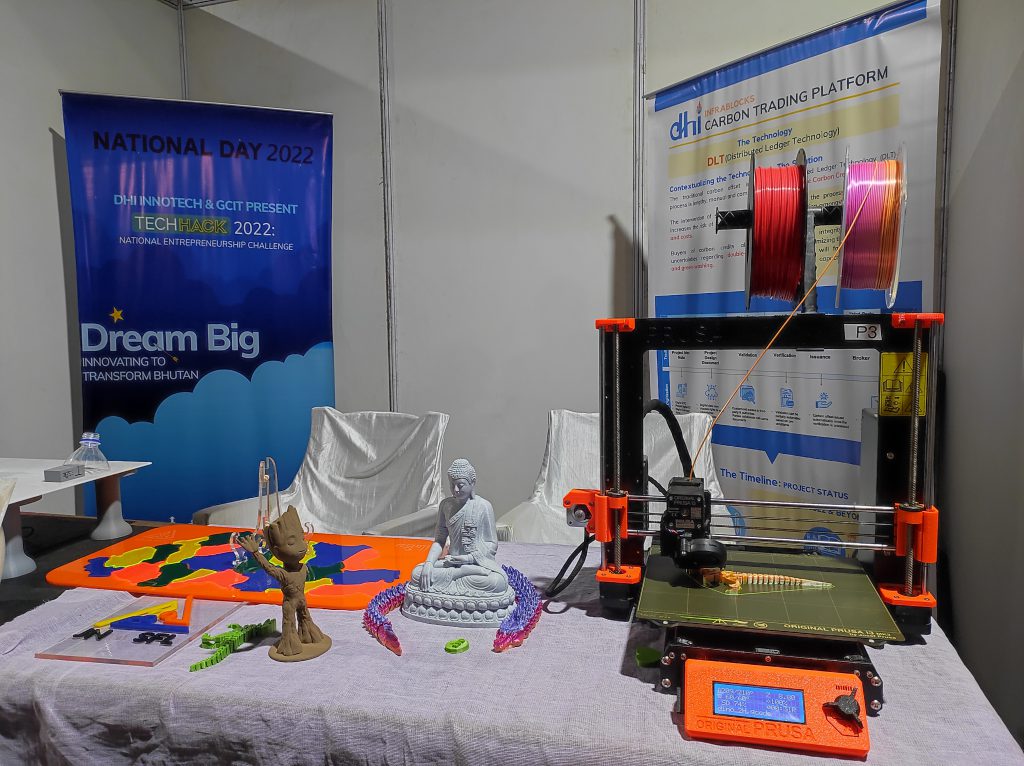The carbon credit will be converted in non-fungible token (NFT) and will be commercialized
By Sangay Dorji
Bhutan is a carbon negative nation which means Bhutan offsets and removes more carbon than it emits.
Article 5, section 3 of constitution of Bhutan mandates the country to maintain minimum of sixty percent of Bhutan’s total land shall be maintained under forest cover for all time. This law has helped Bhutan maintain almost 70% of forest coverage.
This large amount of tree cover has seen Bhutan becoming a carbon sink nation absorbing more carbon dioxide than it produces. Bhutan absorbs roughly seven million tons of carbon dioxide annually and only produces around two million tons.
Taking this in consideration, InfraBlocks Technologies (IBT) partnered with Druk Holding & Investments (DHI) to design a blockchain-based carbon credit platform to encourage continued environmental preservation and sustainable development by leveraging climate technology. The partnership will design a blockchain-based carbon credit platform.
According to Jigme Tharchen, Associate Analyst, Druk Holding & Investments said, “As Bhutan is carbon negative and sinks in more carbon dioxide then we produce, we can sell our carbon credit to outside companies using blockchain technology.”
A blockchain is basically a digital ledger of transactions that is duplicated and distributed in such a way that it makes it difficult or impossible to change, hack, or cheat the system.
“We will use blokechain technology to store our documents and information and hash our documents. Once our document is hash it becomes very hard to temper,” he added.
The carbon credit according to Jigme Tharchan will be converted in non-fungible token (NFT) and will be commercialized.
A non-fungible token (NFT) is a unique digital identifier that cannot be copied, substituted, or subdivided, that is recorded in a blockchain, and that is used to certify authenticity and ownership.
The carbon credit platform, created by a group of climatologists and technological experts, would assist project owners in streamlining and automating the issuance of carbon credits in Bhutan. A Minimum Viable Product (MVP) was recently technically developed in partnership with the Asian Development Bank (ADB) which is being used in hydro power project to test the MVP.
The project aims to Digitalise the process and streamline collaboration amongst intermediaries, reduce the risks and costs associated with the traditional issuance process and ensure the integrity of the carbon credits, legitimizing them for sale.
The initiative was awarded by Monetary Authority of Singapore’s (MAS) Financial Sector Technology and Innovation (FSTI) proof-of-concept (POC) grant. The FSTI POC grant provides funding support for the experimentation, development, and dissemination of nascent innovative technologies in the financial service sectors.
Currently, the project is in its second phase and success of this phase will determine initiation of the final phase.
 BHUTAN TODAY The New Perspective
BHUTAN TODAY The New Perspective

